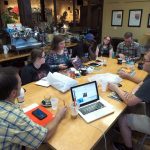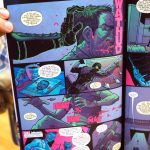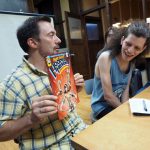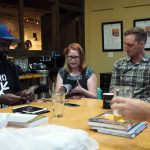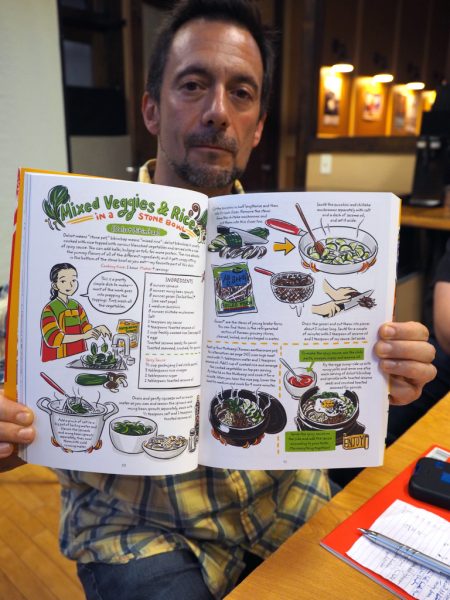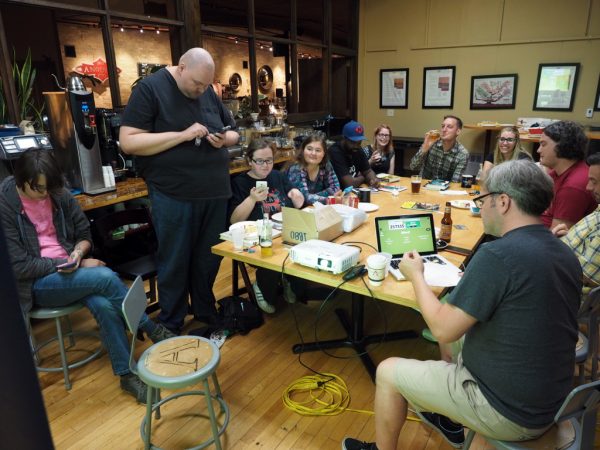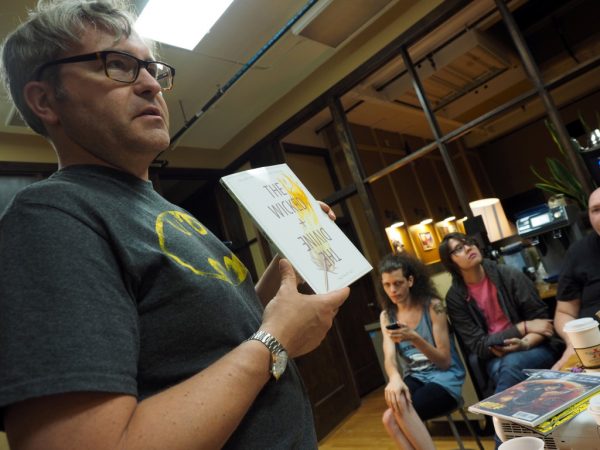This month at MKE Comicbook we talked about the continued diversification of creators and characters in mainstream comicbooks. Through much of the history of modern mainstream comicbooks, the industry has been largely created by white men. The readership though, has been diverse and is continuing in that direction. The industry is finally waking up to this, and bringing in more diverse creators and characters. It’s a long ways from “perfect” yet, but the industry is moving in the right direction.
The discussion started with a question: while creators have written/drawn characters of a variety of ethnicities/sexualities, should they exclude themselves from telling stories about characters that aren’t the same as them? The group’s answer was pretty simple – to assume that a professional creator isn’t able to imagine something outside their own realm of experience does a pretty big disservice to their creativity and sense of empathy – so, yes, a white man could write a story about a black woman, for instance – but, and it’s a big one, BUT the industry has been so one-way for so long, that it really needs to start recognizing the value that a diverse array of creators will bring to the books. Behind the scenes, and on the pages, REPRESENTATION MATTERS; it will make for a greater variety of stories told and will bring in more readers, too.
Don brought three books to share – Marvel’s Nighthawk, a gritty, street-level vigilante that is written by David F. Walker, and features African-American millionaire, Kyle Richmond; Sex Criminals #13, a one-issue story about people who identify as asexual; and, Stuck Rubber Baby, a graphic-novel about being a gay white man in the South, during the Civil Rights Era.
Emilio shared The Domino Chronicles by Mandel Johnson, a creator Emilio met at recent comicon. And, for novelty’s sake, he shared with us the “Super Teenage Hooper Heroes” – I honestly don’t know where Emilio finds some of these comics! 🙂
Podkayne and Mod shared a book about the Muppets, as it featured a comic strip about Gonzo opting out of using a “men’s” or “women’s” bathroom, and using a “whatever” bathroom instead! So, it seemed rather progressive and inclusive for the 80s.
Matt mentioned that he’d always thought Runaways was a book that had been pretty excellent because of its diverse cast of characters.
Jony brought Buffy the Vampire Slayer, to shine a spotlight on two of its artists – Jo Chen (on covers) and Georges Jeanty (on interiors).
Kate shared two books – a sisters-in-adventure book called “Mae”, by the excellent creator Gene Ha, and also “Onward Towards Our Noble Death”, a graphic novel for the Japanese market that satirized the Japanese soldier experience during WW II.
Tarik brought a pretty unusual book to share – it was a Korean cookbook – in comicbook format!
Justin shared the modern classic in autobiographical graphic novels from Alison Bechdel – Fun Home, and also shared the award-winning Persepolis.
Shawn brought and Image book called Kaptara, featuring a very varied group of characters. He also stated how big a fan he was of the Milwaukee Public Library system and how many comicbooks they bring into their collections. He also shared the “Black Panther: Who Is the Black Panther?” trade, which touched on colonialism and also on the idea of “First Nation” peoples.
I brought a trio of books featuring black and diverse characters, all from the same writer – Al Ewing. My first selection was “Captain Britain and the Mighty Defenders” – a two-issue series that re-imagined a bunch of Marvel heroes as predominantly female and mostly women of color at that.
The second series was The Ultimates, which is an Avengers-ish book, but with heroes handing problems on a galactic scale! This book features two black, male heroes and three women (two of color, one white).
The third book was Ewing’s most mainstream Marvel book – Mighty Avengers – in that it featured some already well-known characters like Luke Cage and Monica Rambeau (previously in other Avengers books). What made it really stand out though, and made me think more about the issue of representation was the fact that the entire team was comprised of various non-white characters and it was all-in an Avengers book. And I guess, I just never really considered what it would be like to read a comic where the majority of characters didn’t share my skin-tone. It really drove home the point that we readers have varied skin tones and our heroes should too.
Thank you again to Anodyne Coffee for hosting us, and to Lost World of Wonders for providing the prize for the trivia contest!
